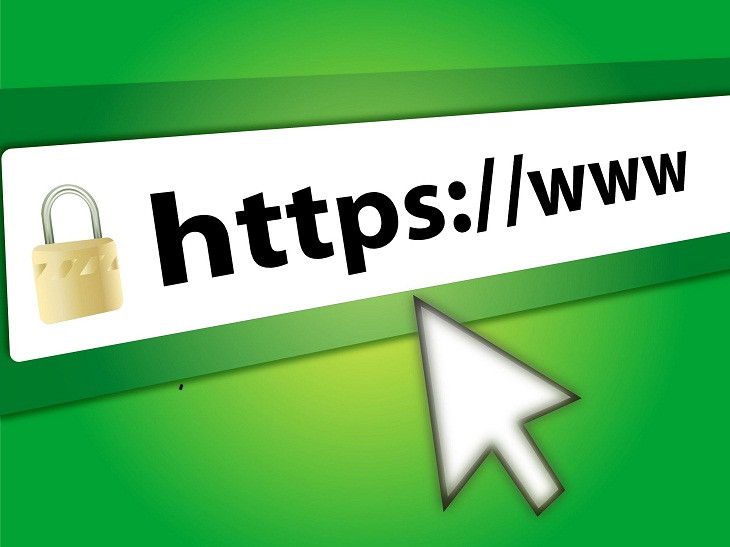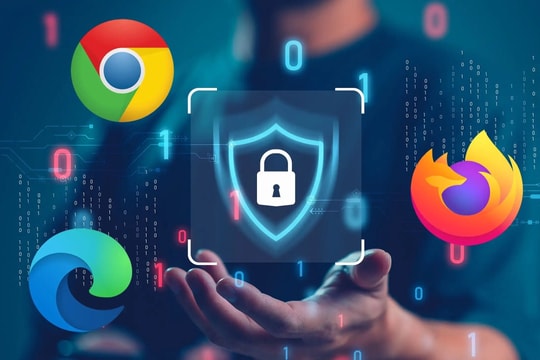10 tips to help you shop more safely online
With the development of technology, online shopping has become more popular than ever. However, along with the conveniences, online shopping also has many potential risks. This article will share 10 tips to help you shop online more safely and effectively.
When shopping online, finding websites with sketchy interfaces, suspicious website addresses (URLs), or unbelievable discount offers requires you to always be alert and vigilant.
Remember, scammers often use sophisticated tactics to exploit consumers' desire for bargains. For example, a website that sells items at prices that are too low compared to the market, or an email that promises to win a prize if you provide your personal information, can all be red flags.

According to statistics from the US Federal Bureau of Investigation (FBI) in 2022, the Internet Crime Complaint Center recorded nearly 12,000 cases of US users reporting fraud related to non-payment or non-delivery of products after ordering. The loss figure of more than 73 million USD shows the seriousness of this problem.
Fraudsters often take advantage of the desire to buy cheap goods or trust in fake brands to commit fraud. Therefore, equipping yourself with the necessary knowledge to identify and avoid falling into these situations is extremely necessary.
1. Only shop on popular or familiar websites
For a safe and convenient online shopping experience, prioritize choosing large and reputable e-commerce websites such as Amazon, Target, Best Buy, Shopee, etc. These websites have been trusted by millions of people and have proven to be safe. Remember, overly attractive offers from unfamiliar websites often contain many risks. Be careful with websites with complicated URL addresses, spelling mistakes, or using strange domain names.
2. When in doubt, check if the site uses a secure protocol
If you're not sure if the site you're shopping from is legitimate, look at your browser's address bar. Don't buy anything online from a site that doesn't display a padlock icon near the URL. The padlock icon indicates that the site has installed Secure Sockets Layer (SSL). This means that your data transmission is more secure than on an unencrypted site.

A simple way to tell if a website uses SSL is to check the URL. If the URL starts with "https://"; instead of "http://";, which means that the website is secured with SSL. Google Chrome even marks websites without SSL as “not secure” to warn users. Using “https” has become standard for all websites, especially those that require personal information.
3. Research the seller carefully before buying
Before deciding to buy from a new website, take the time to research the seller. Use search engines and read reviews from previous customers. This will help you spot red flags, avoid scams, and better protect your wallet.
While online reviews are a valuable source of information, you need to be careful and know how to analyze them. Not all reviews are trustworthy. Many sellers have used tricks to create fake positive reviews to deceive consumers.
If you only see perfect reviews or no negative reviews at all, be cautious. Try to find reviews that are detailed, specific, and from different users to get a more objective view.
Before you make a purchase, make sure you have the seller’s full contact information, including a physical address, phone number, and email. This will make it easier for you to contact them if there are any issues, such as an item not as described, a delivery delay, or a return. Having clear contact information will help you feel more secure when shopping online.
Remember, a little caution can save you from unnecessary hassles related to late deliveries, poor quality products or even losing money.
4. May lie or omit personal information on shopping forms
There's no reason an online retailer should need to know your date of birth, middle name, social security number, or any other personal information other than your payment method and shipping address. Feel free to lie if a retailer asks you to fill in that kind of data to complete your transaction.
Your personal information is valuable. The less personal information you disclose, the less likely it is that someone will use it to steal your identity. Remember, no system is completely secure from cyberattacks, so limiting the amount of personal information you share is one of the most effective ways to protect yourself.
5. Don't use your debit card for online shopping
When shopping online, choosing a secure payment method is very important. Debit cards, although convenient, have many potential risks. If the card information is stolen, criminals can withdraw all the money in your account. Therefore, to protect your assets, you should prioritize using credit cards, mobile payment applications or electronic wallets, payment methods with higher security and more user protection features.
6. Pay by phone at the store
Paying with your smartphone has become pretty standard in brick-and-mortar stores and is safer than using a credit card. Using a mobile payment app like Apple Pay or Google Pay means you authenticate your identity with your device, so no one else can claim to be you and steal your data or money. Plus, you’re keeping card fraud at bay.
7. Be careful with gift card transactions
Buying and selling gift cards requires caution. Only buy gift cards from reputable vendors and double-check the card information before making a transaction. Buying gift cards from strangers or on untrusted platforms can cost you money. Remember, once a gift card is lost or stolen, it is very difficult to get it back.
8. Ensure data security when using public Wi-Fi networks
When connecting to public Wi-Fi networks, prioritize choosing verified and trusted networks like those available at popular cafes, restaurants, and libraries.
Avoid connecting to unknown, free networks, as they can be entry points for hackers to steal your personal information. For optimal data protection, use a virtual private network (VPN).
VPN is like a strong protective shield, encrypting all data transmitted and received, creating a secure tunnel between your device and the online world. Thanks to that, your personal information will be protected from prying eyes and cyber attacks, giving you peace of mind when accessing the internet at public places.
9. Install and use security applications
Password managers are a great way to help you protect your personal information. With this manager, you can create strong, unique passwords for each account, ensuring absolute security. In addition, password managers also help you automatically fill in login information and addresses, saving time and minimizing the risk of entering incorrect data.
For more comprehensive protection, you should regularly update your antivirus software. Additionally, investing in a high-quality security suite will help you avoid many other types of threats, such as spam, phishing emails, and website spoofing attacks. These types of attacks often impersonate reputable organizations to trick you into providing personal or banking information.
However, installing security software is just the first step. To effectively protect your devices, you need to keep it updated regularly. Malware is always changing and evolving, so keeping it up to date is crucial to preventing new threats from emerging.
10. If you are scammed, speak up.
Being scammed while shopping online is something no one wants, but don't worry too much. Instead of silently suffering, be bold and speak up. Complain directly to the seller, report the incident to the relevant authorities. This will not only help you regain your rights but also help warn others to avoid making similar mistakes.





